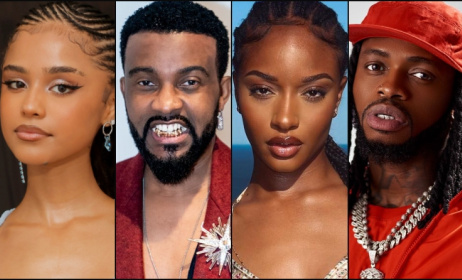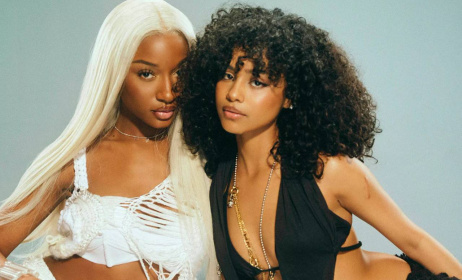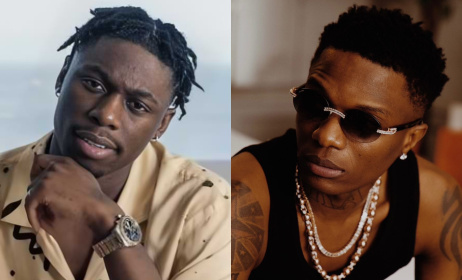How The New Yorker magazine failed Nigerian pop music
When the novelist Chimamanda Adichie addressed the danger of a single story, speaking about the limiting effects stereotypes could carry, she may not have realised just how many contexts her talk could be applied to.
 2Baba poses for The New Yorker magazine. Photo: Namsa Leub
2Baba poses for The New Yorker magazine. Photo: Namsa Leub
Till date, despite an increase in the visibility of marginalised identities, creative types still find themselves having to shape themselves into digestible moulds.
Not that this is always a bad thing. But it seems that with Nigeria’s rise to global visibility in the culture space, Nigerian productions have to contend not only with issues of the Western gaze but also with Western laziness.
This is not a new occurrence. The critic Oris Aigbokhaevbolo once described this phenomenon as patronising: some Western individuals and organisations come with intentions so high-minded and well-meaning they are matched only by their ignorance of context.
The result is a series of well-documented enthusiasm hefted towards the novelty of Africa and its culture (Africa is the last great frontier, a curator once said to me) and some politically correct declarations about how overdue this sort of representation is. Yet for all the enthusiasm and promotion, Western interest in Africa still lags behind, hiding behind the aforementioned digestible moulds. For reference, see Binyavanga Wainanaina’s How to Write About Africa. That essay still rings true.
I was reminded of this laziness when reading through The New Yorker’s recent piece covering Nigerian music. The New Yorker, that Holy Grail of writerly ambitions, like most Western establishments with good intentions towards Africa, falls short again into the trap of patronising without research or understanding.
The article Beats Generation, Nigerian Musicians Changing the Sound of Global Pop reads like a #sponsoredad piece. A staff writer thousands of miles away pens an article whose depth of understanding is equal to one conversation with 2Baba and the first page of a Google search about Nigerian pop.
The piece starts out seeming like a profile of the Nigerian music legend. It traces us back to the founding days of the maestro’s music as a member of the Plantashun Boiz before ricocheting into today. And just when we think it might be pivoting into something nuanced or topical, it drops dead.
Granted, it is not a piece with a text-heavy format. There is music and there are photos. Yet, the images are almost cringe-worthy in their eagerness to seem Afropolitan. They lack the excitement of Namsa Leuba’s previous shots for Nike’s Nigeria Jersey. Somehow the pictures don’t inspire any frenzy about music or Nigeria.
It is amazing that a world-class magazine assembled and photographed these many artists without printing their takes on music, on 'Afrobeats', or even quoting any of them directly to give the text more variance. The article attempts to trace the rise of Afro-pop, yet it excludes two Nigerian artists who have been at the forefront of this rise.
While it mentions the Billboard hit 'One Dance', it somehow excludes Wizkid, the track’s featured Nigerian artist, from the list of musicians profiled. (Davido who was photographed was not asked any questions about his relationship with Sony which he outlines on The Breakfast Club as an experience where the label tried to mould him into a marketable form because the music company just did not get him.)
The article also neglects to mention D’Banj, who seemed to be headed towards a fruitful friendship with Kanye West and G.O.O.D Music but ended up tossed aside after his viral 15 minutes ended.
The article is not The New Yorker’s first misstep. Last year, its piece on Maki Oh ('West Africa’s Most Daring Designer') managed to secure the collective disproval of the city it profiled. To quote art curator Bisi Silva, “This text is a disservice to the designer and a country that has so much, much more to offer”. These sort of missteps might be forgiven in the hands of a lesser publication but it's intolerable for The New Yorker, given its standards.
It is simply no longer enough to expose Africa for exposure’s sake or to fill a global diversity quota for 'cool'. It is not unreasonable to expect better quality of work, especially when provided with the privilege and access a publication like The New Yorker pulls. It should, at the very least, utilise the talent at hand and use Nigerian writers to write about Nigeria.
It is said that there is no such thing as bad publicity, but in the case of this article, we might make an adjustment and call it 'lazy publicity'. The New Yorker has to do better next time.
Disclaimer: The views voiced by columnists published on Music In Africa do not necessarily represent the views of the publication.



























Commentaires
s'identifier or register to post comments